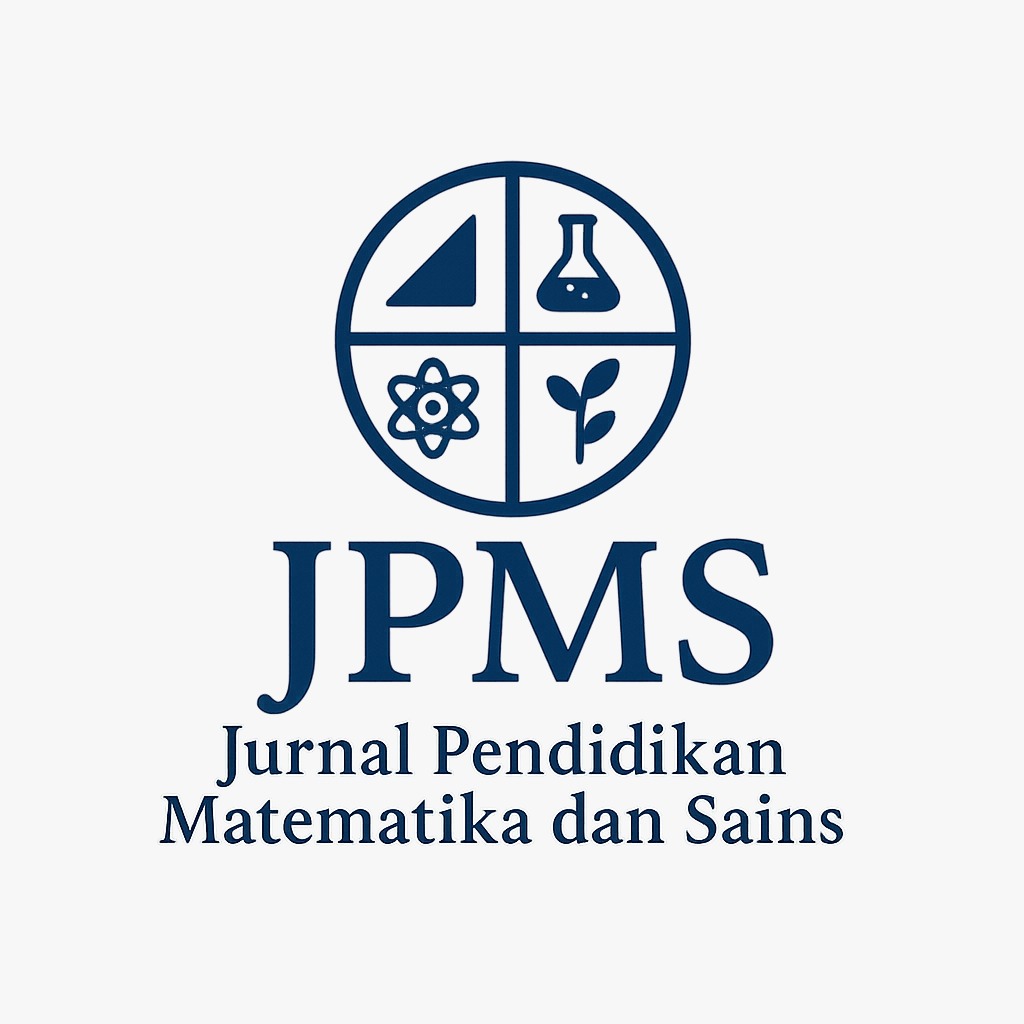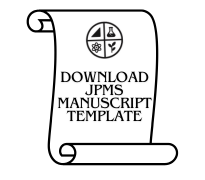Literacy and Research-Oriented Problem-Based Learning: Exploration of Implementation in Classroom Learning
DOI:
https://doi.org/10.21831/jpms.v13i1.82391Keywords:
implementation test, LIRACLE learning model, molecular dynamicsAbstract
References
Akcay, B., & Benek, I. (2024). Problem-based learning in tí¼rkiye: a systematic literature review of research in science education, Education Science, 14(3). 330. https://doi.org/10.3390/educsci14030330
Aslan, A. (2021). Problem-based learning in live online classes: Learning achievement, problem-solving skill, communication skill, and interaction. Computers and Education, 171 https://doi.org/10.1016/j.compedu.2021.104237
Barret, T. (2017). A new model of problem-based learning: inspiring concepts, practice strategies and case studies from higher education. All Ireland Society for Higher Education (AISHE).
Brilingaite, A., Bukauskas, L., & Juskeviciene, A. (2018). Competency assessment in problem-based learning projects of information technologies students. Informatics in Education, 17(1), 21–44. https://doi.org/10.15388/infedu.2018.02
í‡alık, M., íœltay, N., Kolomuí§, A., & Aytar, A. (2015). A cross-age study of science student teachers' chemistry attitudes. Chemistry Education Research and Practice, 16(2), 228–236. doi:10.1039/c4rp00133h
Cavadas, B., Rezio, S., Nogueria, J. R., & Branco, N. (2022). A framework and a reseacrh design proposal to identify preservice teachers' integration performance of science and mathematics. Canadian Journal of Science, Mathematics, and Technology Education, 22. 101–129. https://doi.org/10.1007/s42330-022-00198-2
Cigdemoglu, C., Arslan, H. O., & Cam, A. (2017). Argumentation to foster preservice science teachers' knowledge, competency, and attitude on the domains 237 of chemical literacy of acids and bases. Chemistry Education Research and Practice, 18(2), 288–303. doi:10.1039/c6rp00167j
Easa, E., & Blonder, R. (2024). Fostering inclusive learning: customized kits in chemistry education and their influence on self-efficacy, attitudes and achievements. Chemistry Education Research and Practice, https://doi.org/10.1039/D4RP00144C
Edwards, D., Carrier, J., Csontos, J., Evans, N., Elliot, M., Gillen, E., Hannigan, B., Lane, R., Williams, L. (2023). Review: Crisis responses for children and young people – systematic review of effectiveness, experiences, and service organisation (camh-crisis). Child and Adolescent Mental Health, 29(1), 70 – 83. https://doi.org/10.1111/camh.12639
Grant, M. M. (2002). Getting a grip on PBL: Theory, cases and recommendations. Meridian: A Middle School Computer Technologies Journal A Service Of NC State University, Raleigh, 5(1), 1–17
Hartono, A., & Widodo.(2009). Adsorpsi Logam Berat dengan Karbon Aktif dan Limbah Pertanian. Jurnal Kimia Lingkungan, 5(1),45-53.
Joyce, B., Weil, M., & Calhoun, E. (2016). Models of Teaching (9th Ed). Bacon Publisher
Keslair, F., & Paccagnella, M. (2020). Assessing adults' skills on global scale: a joint analysis of results frim piaac and step. OECD Education Working Paper No. 230, 1–50. https://dx.doi.org/10.1787/ae2f95d5-en
Muntholib., Ibnu, S., Rahayu, S., Fajaroh, F., Kusairi, S., & Kuswandi, B. (2020). Chemical literacy: performance of first year chemistry students on chemical kinetics. Indonesian Journal of Chemistry, 20(2), 468–482. DOI: 10.22146/ijc.43651
Perry, K.H., Shaw, D.M., & Saberimoghaddam, S. (2020). Literacy practices and the programme for the international assessment of adult competencies (piiac): a conceptual critique. International Review of Education, 66(1). https://doi.org/10.1007/s11159-019-09819-9
Pratama, F. I., Aznam, N., & Rohaeti, E. (2023). The study of chemical literacy related to chemical ethics based on local phenomena day-to day: a case of used cooking oil. Jurnal Penelitian Pendidikan IPA, 9(9), 6810–6818. https://doi.org/10.29303/jppipa.v9i9.3224
Pratama, F. I., Rohaeti, E., Ariantika, D., Fauzia, S. D., Wulandari, N. I., & Pawestri, J. S. (2024). Penjabaran model literacy and research-oriented cooperative problem-based learning dalam kasus pencemaran air oleh logam fe . Jurnal Pendidikan Matematika dan Sains, 12(2), 132–138. https://dx.doi.org/10.21831/jpms.v12i2.79113
Pratama, F.I., & Rohaeti, E. (2023). Students' Chemical Literacy Ability on Hydrocarbon Material: A Case of Toxic Compounds in Fried Food. Jurnal Penelitian Pendidikan IPA, 9(9), 6795–6802. https://doi.org/10.29303/jppipa.v9i9.4554.
Pratama, F. I., Rohaeti, E., & Laksono, E. W. (2024). Empirical Foundations for Developing New Learning Models to Improve Chemical Literacy, Scientific Habits of Mind, and Science Process Skills of Chemistry Education Students. Jurnal Penelitian Pendidikan IPA, 10(10), 8062–8069. https://doi.org/10.29303/jppipa.v10i10.8661
Purba, M. P. (2019). Tantangan Kualitas Air Sumur dan Dampaknya terhadap Kesehatan. Jurnal Kesehatan Masyarakat, 10(1), 23-29.
Shankar, P. R. (2010). Problem-based learning: a review. Journal of Clinical and Diagnostic Retrieved from http://www.jcdr.in/article_fulltext.asp?issn=0973- 709x&year=2010&volume=&issue=&page=&issn=0973-709x&id=989
Stasevic, F., Miletic, N., Nikolic, J. D., & Gutman, I. (2023). Do Serbian high school students possess knowledge of basic chemical facts related to real life as prerequisite for chemical literacy? Journal of Serbian Chemical Society, 88(3), 343–354. https://doi.org/10.2298/JSC211126083S
Yang, X. (2023). A historical review of collaborative learning and cooperative learning. Tech Trends, 67. 718–728. https://doi.org/10.1007/s11528-022-00823-9
Downloads
Published
How to Cite
Issue
Section
Citation Check
License
Jurnal Pendidikan Matematika dan Sains allows readers to read, download, copy, distribute, print, search, or link to its articles' full texts and allows readers to use them for any other lawful purpose. The journal allows the author(s) to hold the copyright without restrictions. Finally, the journal allows the author(s) to retain publishing rights without restrictions
- Authors are allowed to archive their submitted article in an open access repository
- Authors are allowed to archive the final published article in an open access repository with an acknowledgment of its initial publication in this journal

This work is licensed under a Creative Commons Attribution-ShareAlike 4.0 Generic License.





